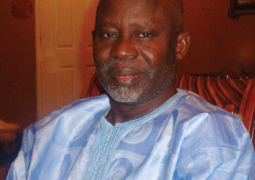(Thursday 24th October 2019 Issue)
Disputes
over land are a major problem in most developing countries The Gambia in
particular. Most of the time, the issue gets even more and more complicated
especially in the urban centers and along the country’s coast due to population
growth. More and more families in the provinces are migrating to the urban and
peri-urban centres on a number of factors. And farmlands in the urban and
peri-urban centers are turning into settlements.
As
reported in the news today, the deputy governor of West Coast Region has
recently challenged district chiefs in the region to create space for
discussion with their Alkalolus on how to resolve land disputes in the region.
Yes,
some of the land quarrels occur by accident, but many are triggered
deliberately by some people who would sell a plot to many buyers, transferred
their ownership to more than one person with the signature of the same Alkalo.
Land
disputes could be minimized if it is channelled through the right procedure.
Community heads or Alkalolu should also desist from acts that would jeopardize
their integrity. They have a huge role to play when it comes to strengthening
and cementing unity and cooperation at the community level. In fact they are
the custodians in villages, something that comes with huge responsibility.
Meanwhile,
it is high time government put in place firm measures especially in land
business to avoid future conflicts.
Land
issues, particularly its access, ownership and use, are often central to
understanding the dynamics of conflict and post-conflict settings. And in The
Gambia some of the land problems are hereditary. However, most conflicts occurred where a
father would sell a plot and the son claims ownership of the same land even
though it has been sold to a different buyer after the death of the father.
Majority
of this land disputes happen in the Kombos especially in West Coast Region. And
the most worrying aspect is that most of these land disputes end up in court,
which sometime takes month or years before it is decided.
‘‘If
you’re against war, you’re against war regardless of what happens. It’s a wrong
method of trying to settle a dispute.’’
Jeannette
Rankin




